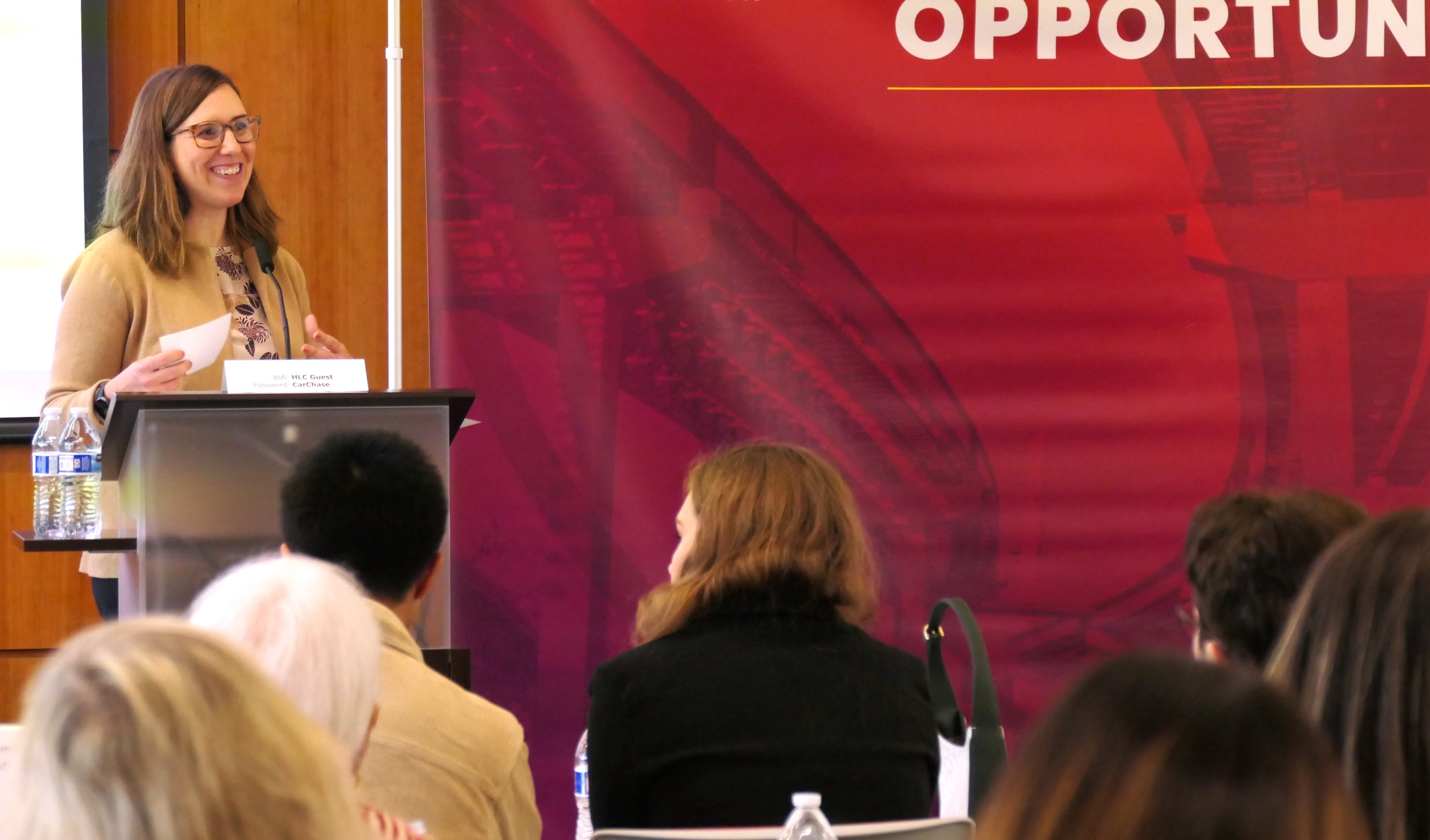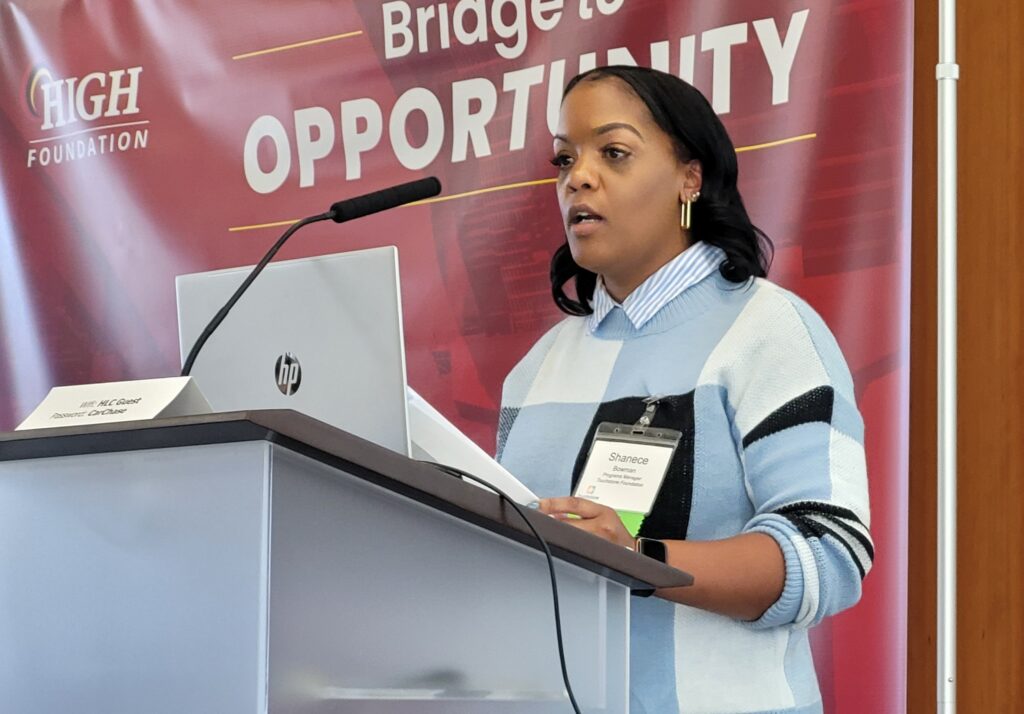
Touchstone Foundation’s plans to launch a Youth Mentorship Partnership Program stem directly from what the organization has heard from young people themselves, Shanece Bowman said.
“These kids are very open and honest,” she said. “They don’t want the traditional modalities. … They want you to meet them where they are.”
Bowman is Touchstone’s programs manager. She was among the speakers this week at a forum on the foundation’s recently released Mental Health Needs Assessment.
About 80 people attended, representing educational institutions, mental health and social service organizations and funding agencies. The forum was divided into three phases: A review of the findings, reactions and reflections from a series of seven panelists, then a Q&A and general discussion.
What’s next
Touchstone Foundation is planning an information session on Wednesday, Jan. 24, 2024, about the Request for Applications it plans to issue for its Youth Mentorship Partnership Program.

The application itself will be issued around the same time, foundation Executive Director Anna Kennedy said.
The need for more qualified adult mentors was a key finding of Touchstone’s Mental Health Needs Assessment. Most young people who participated said they don’t especially want to talk with a counselor in an office. Rather, they want to share activities with an adult and be able to openly discuss things like school, friends, dating jobs and so on.
Mentors will partner with Touchstone and other organizations serving Lancaster County youth. They will go through background checks and clearances and receive trauma-informed training.
“These mentors will serve as the trusted, caring, safe, consistent presence that youth are requesting,” Touchstone said.
The assessment (PDF) is based on a survey of parents and caregivers and a “listening tour” that convened focus groups of young people. It was launched last summer and Touchstone “paused” behavioral health grant program in the meantime.
Parents reported that mental and physical health care have improved in quality and accessibility since 2015, but that their children are experiencing lower wellbeing, including significantly higher levels of anxiety, depression and stress. They reported more bullying and social exclusion and lower trust in their neighborhoods.
Touchstone Executive Director Anna Kennedy drew attention to a disparity between parents’ assessments of their children’s feelings and the children’s own reports.
In the assessment, about one third of parents reported their children “sometimes” or “always” felt unhappy. In contrast, 38.5% of Lancaster County children in the 2021 Pennsylvania Youth Survey reported feeling sad or depressed most of the time.
The panelists said the increases in mental health problems reported in the assessment track with what they see in the field. They called for more resources, better coordination and more understanding and empathy from the community at large.
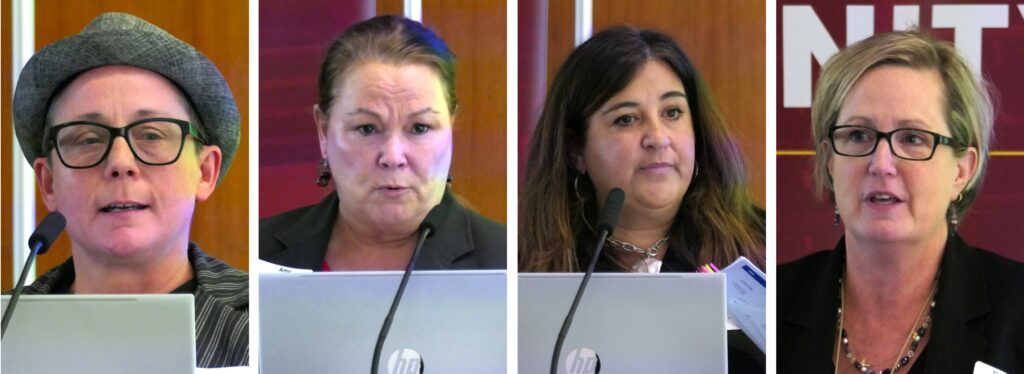
“Kids are out there floundering,” said Christine Pfau-Laney, an attorney who represents Lancaster County’s Children & Youth Agency in litigation. Many, she said, report being “desperately lonely. … They have no connection.”
In the School District of Lancaster, the number of school-based therapists has dropped from 45 to 28, said Amy Marenick, SDL Student Assistance Program coordinator. When students are referred for counseling, it’s taking at least nine months to get appointments, she said.
In the LGBTQ community, “Things are bad. They really are,” Lancaster LGBTQ+ Coalition Executive Director K Foley said. She and others took note of two recent local youth suicides, both involving individuals who identified as LGBTQ.
“Take this seriously,” Foley said. “Step it up and support our community.”
Kim McDevitt, executive director of Mental Health America of Lancaster County, said she’s not surprised that bullying has increased: Anti-bullying initiatives are less prevalent than they were a few years ago.
Compared to some of its peer jurisdictions, Lancaster County is “rich with resources,” she said. “Let’s get back to some of the things that we were doing well,” she said, and work on interagency communication and continuity of care “so no one falls through the gaps.”
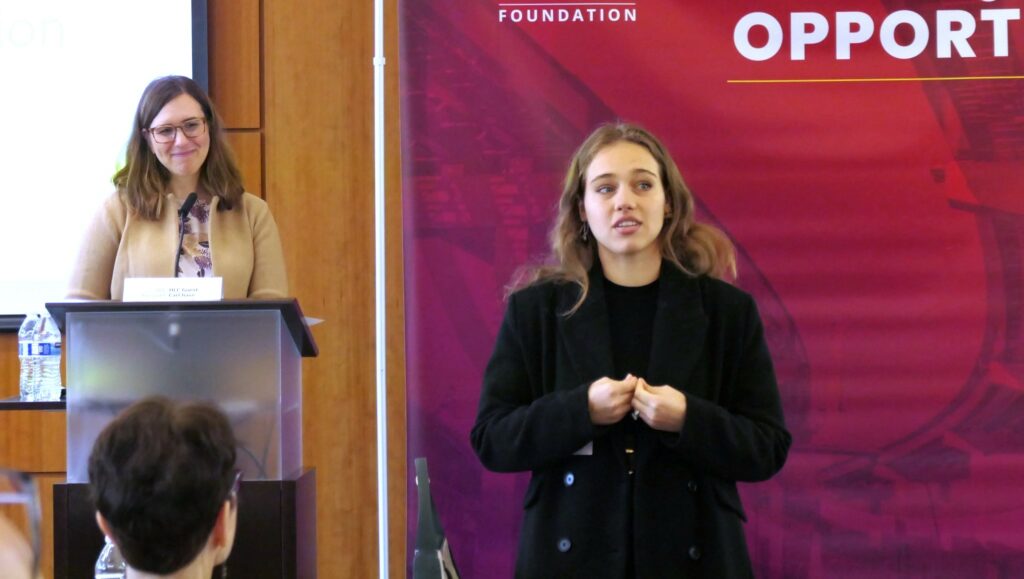
In the group discussion, participants discussed the importance of engaging parents, relatives, peers and the community at large in promoting young people’s mental health, and the challenges of doing so when mental health issues overlap with religion and politics.
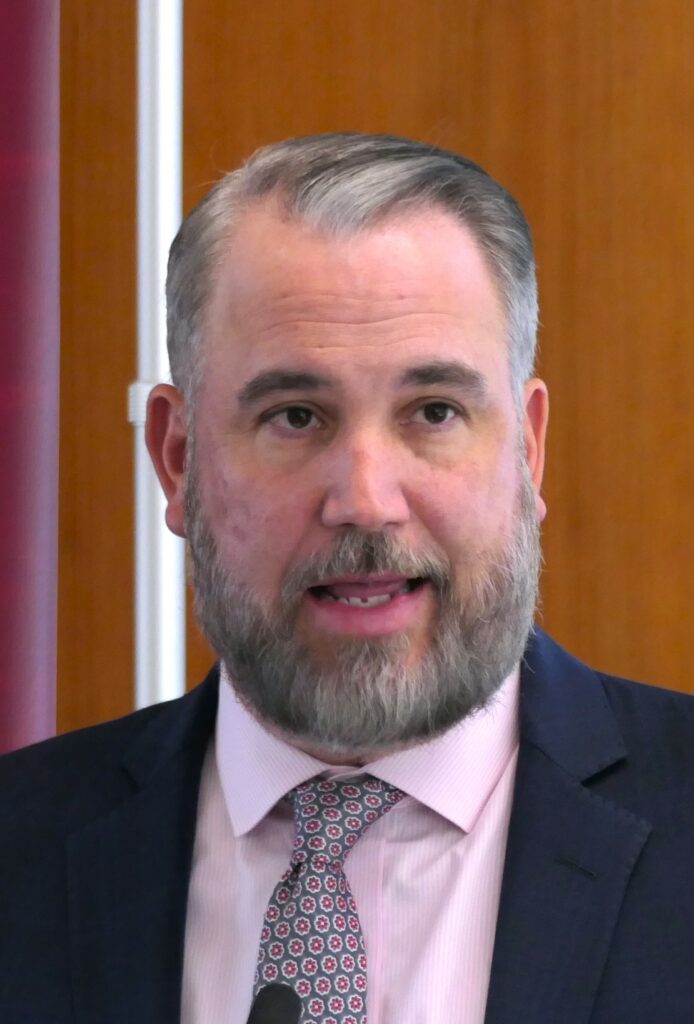
Despite the challenges and setbacks, there’s been progress, said panelist Bill Zee, an attorney and Touchstone board member. Five years ago, Pennsylvania did not mandate trauma-informed training for school staff, but now it does, thanks in large measure to advocacy from the mental health community.
“So, I think there’s some hope,” he said.
Afterward, Kennedy said one of her main takeaways was “that we can’t focus exclusively on our kids without also including families and caregivers.”
“We need to be surrounding these kids with trusted and safe adults” who can be there for them unconditionally, she said.
